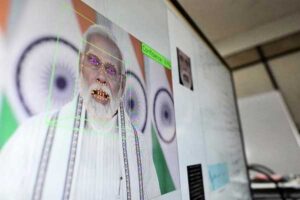
Africa, Civil Society, Climate Change Finance, Climate Change Justice, Conferences, Development & Aid, Editors’ Choice, Environment, Featured, Global, Headlines, Human Rights, Humanitarian Emergencies, Sustainable Development Goals, TerraViva United Nations

Activists at Bonn accuse developed countries of frustrating the process on climate finance. Pictured here are Danni Taaffe, Head of Communications at Climate Action Network (CAN), Mohamed Adow of Power Shift Africa and Sven Harmeling, Head of Climate at CAN. Credit: Isaiah Esipisu/IPS
– As the technical session of the global climate negotiations enters the final stretch in Bonn, Germany, climate activists from Africa have expressed fears that negotiators from the developed world are dragging their feet in a way to avoid paying their fair share to tackle the climate crisis.
“I think we will be unfair to the snail if we say that the Bonn talks have all along moved at a snail pace,” quipped Mohammed Adow, the Director, Power Shift Africa.
“Ideally, there will be no climate action anywhere without climate finance. Yet what we have seen is that developed countries are frustrating the process, blocking the UAE annual dialogues, which were agreed upon last year in Dubai, to focus on the delivery of finance so as to give confidence to developing countries to implement climate actions,” said Adow.
According to the UN Framework Convention on Climate Change (UNFCCC), the United Arab Emirates (UAE) dialogue was created to focus on climate finance in relation to implementing the first Global Stoke Take (GST-1) outcomes, with the rationale of serving as a follow up mechanism dedicated to climate finance, ensuring response to and/or monitoring of, as may be appropriate and necessary, all climate finance items under the GST
The two-week Bonn technical session of Subsidiary Bodies (SB60) was expected to develop an infrastructure for the New Collective Quantified Goal (NCQG), a climate change funding mechanism to raise the floor of climate finance for developing countries above the current $100 billion annual target.
In 2009, during the 15th Conference of Parties (COP15) of the UNFCCC in Copenhagen, developed countries agreed that by 2020, they would collectively mobilize $100 billion per year to support priorities for developing countries in terms of adaptation to climate crisis, loss and damage, just energy transition and climate change mitigation.
When parties endorsed the Paris Agreement at COP 21 in 2015, they found it wise to set up the NCQG, which has to be implemented at the forthcoming COP 29, whose agenda has to be set at the SB60 in Bonn, providing scientific and technological advice, thereby shaping negotiations in Azerbaijan.
However, activists feel that the agenda being set in Bonn is likely to undermine key outcomes of previous negotiations, especially on climate finance.
“We came to Bonn with renewed hope that the NCQG discussions will be honest and frank with all parties committed to seeing that the finance mechanism will be based on the priorities and needs of developing countries and support country-driven strategies, with a focus on Nationally Determined Contributions (NDCs) and National Adaptation Plans (NAPs),” said Memory Zonde-Kachambwa, the Executive Director, FEMNET.
“Seeing the devastation climate change is causing in our countries in terms of floods, storms, and droughts, among other calamities, it was our hope that the rich countries would be eager and willing to indicate the Quantum as per Article 9.5 of the Paris Agreement so as to allow developing countries to plan their climate action,” she said.
So far, negotiators from the North have been pushing for collective “mobilization of financial resources,” which African activists believe is merely the privatization of climate finance within NCQG, thus surrendering poor countries to climate-debt speculators and further impoverishing countries clutching onto debt.
Also in the spotlight was the Global Goal on Adaptation (GGA), where the activists feel that the means of implementation is being vehemently fought by the parties from developed countries.
“Adaptation must be funded from public resources and must not be seen as a business opportunity open to private sector players,” said Dr. Augustine Njamnshi, an environmental policy and governance law expert and the Executive Secretary of the African Coalition for Sustainable Energy and Access. “Without clear indications on the means of implementation, GGA is an empty shell and it is not fit-for-purpose.”
According to Ambassador Ali Mohammed, the incoming Chair for the African Group of Negotiators (AGN), the SB60 is an opportunity to rebuild trust in the principle of common but differentiated responsibilities and respective capabilities.
“That trust can only be rebuilt if we come out of Bonn with a quantum that adequately covers the needs of the continent,” he said, noting that the figure Africa is asking for, which is to be part of the agenda for COP29, is USD 1.3 trillion per year by 2030.
IPS UN Bureau Report
















